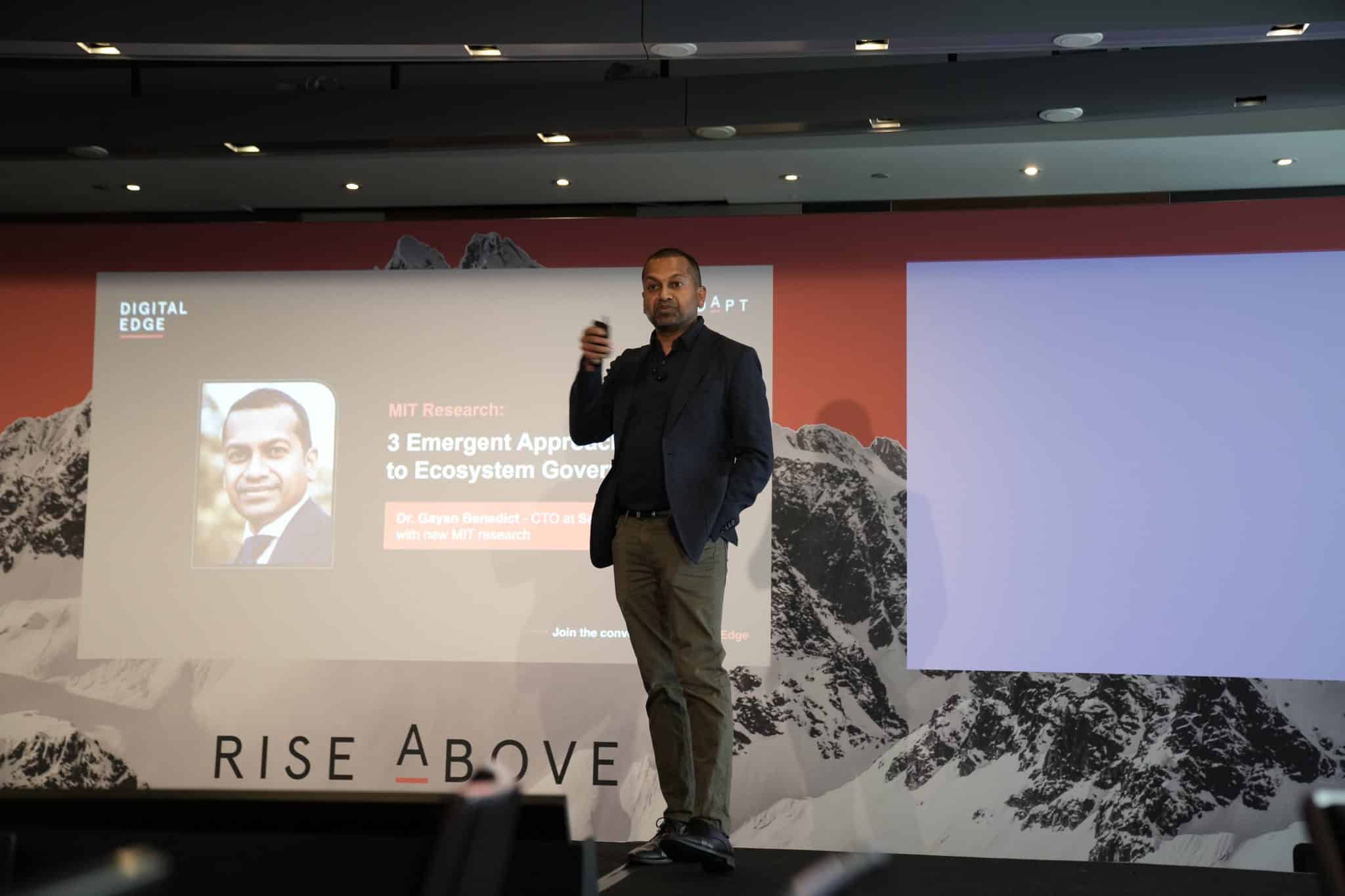Dr Gayan Benedict, CTO at Salesforce and former CIO at the RBA, shares insights from a recent MIT research, focusing on the complexities of governance within digital ecosystems at Digital Edge.
The research highlights that while ecosystems can create significant value, collaboration and trust between participants are critical for success.
Failed examples, like Maersk’s blockchain initiative, illustrate that breakdowns often stem from governance and trust issues rather than technological flaws.
As ecosystems become central to solving complex problems like cyber threats and supply chain frictions, effective governance models—whether led by a dominant party, a representative body, or more decentralised structures—are key to fostering collaboration and long-term success.
Dr Benedict discusses several case studies demonstrating the importance of governance models in creating sustainable ecosystems.
He explains how Salesforce’s AppExchange, launched in 2005 and preceding Apple’s App Store, now plays a crucial role in generating billions in economic value for participants.
The success of Australia’s New Payments Platform (NPP) highlights how a representative governance model with a social contract can enable it to become the fastest-growing real-time interbank infrastructure globally.
Dr Benedict also introduces the innovative governance approach of the Web3 community, exemplified by Wolfram’s AI development funding through Cardano’s voting system.
Transparency, broadening governance participation, and ensuring value distribution among ecosystem participants are essential for long-term success.
Key Takeaways:
- Ecosystem value creation: Successful ecosystems thrive on creating mutual value among participants, whether through innovative platforms like Salesforce’s AppExchange, which generates significant revenue streams for its partners, or through collaborative governance models like Australia’s New Payments Platform, which emphasises shared benefits among stakeholders.
- Transparency and trust: Increasing transparency in decision-making processes and governance structures fosters trust among ecosystem participants. Establishing clear communication channels and transparent metrics for success, as seen in both the AppExchange and the NPP, encourages greater collaboration and commitment to shared goals.
- Adaptive governance models: The evolution of governance models—such as representative governance in the NPP and the community-driven approach in Web3—demonstrates the importance of adapting governance structures to enhance participation, accountability, and sustainability, ultimately leading to more robust and resilient ecosystems.





























